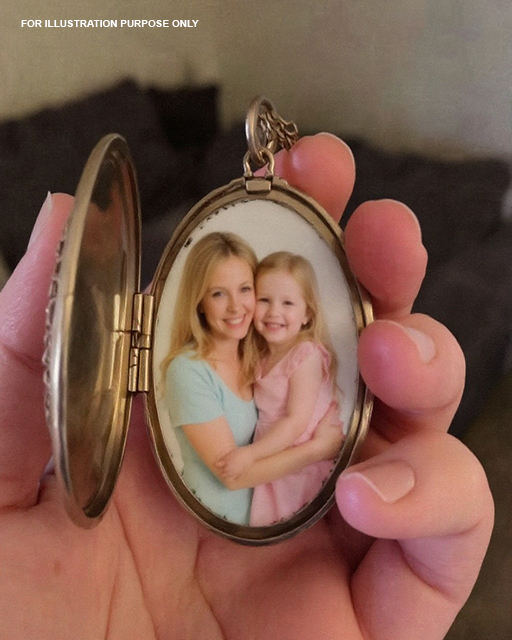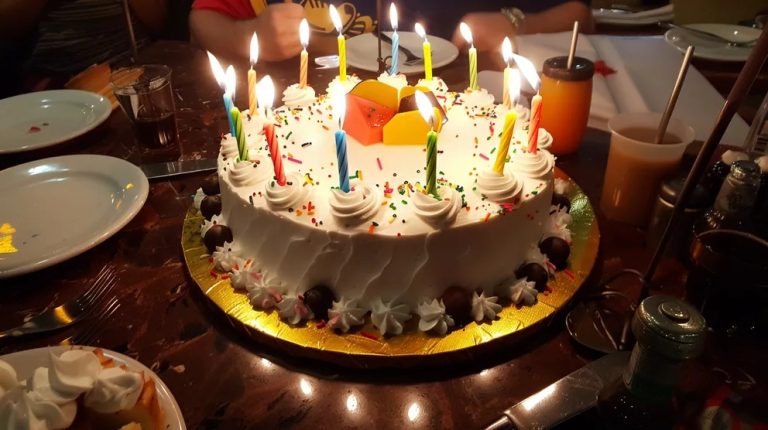
When my mother passed away, I was only ten years old. The grief was sharp and unrelenting, but one thing brought me comfort: a silver oval locket with a photo of my mother and me inside, which she had given me on my eighth birthday. It wasn’t expensive, but it carried her warmth, her love, and a piece of her that I could hold onto. I wore it every day, even as the chain tarnished and the clasp began to loosen. To me, it wasn’t jewelry, it was memory.
When my father remarried two years later, the pendant became even more important. It was a reminder of my mother’s presence, a shield against the changes happening in my life. But to my stepmother, Diane, it was something else entirely: an eyesore.
Diane was the kind of woman who believed in appearances above all else. She dressed in sleek dresses, her nails always manicured, her perfume leaving trails wherever she went. She wasn’t cruel to me outright, not at first, but she had a way of making me feel smaller, like I didn’t quite measure up to her standards.
The first time she commented on the pendant was at dinner one evening. She set her wine glass down, tilted her head, and asked, “Jane, why do you always wear that little trinket? It doesn’t really match anything you wear.”
I touched the pendant instinctively. “It was my mom’s gift. I like it.”
Her smile was thin, her eyes calculating. “Of course, sweetheart. Sentimental value. I just think… you’re a young woman now. Maybe it’s time for something a little more polished. I could take you shopping, buy you a nice gold chain, maybe with a diamond. Something that… suits you better.”
I forced a smile and shook my head. “Thanks, but I’ll keep this.”
She didn’t push it then, but the seed was planted. Over the following months, she found small ways to chip at me. At family gatherings, she’d comment on how “unique” my necklace was, her tone dripping with false sweetness. At school events, she’d sigh dramatically and say, “Don’t worry, one day we’ll get you something real.”
I bit my tongue every time. My father, always eager to keep the peace, never intervened. He seemed oblivious to the tension that grew like vines between us.
The breaking point came on my eighteenth birthday. Diane had planned a party at our house, inviting relatives, friends, and even some of her colleagues. She wanted it to be “sophisticated,” a word she used often. I hadn’t been too excited about it, but I went along for Dad’s sake.
That evening, I wore a simple navy dress and, of course, my pendant. As guests began arriving, Diane flitted about like a hostess on a mission, her voice cheerful but her eyes sharp. When she noticed the necklace, her lips tightened.

“Jane,” she whispered sharply as we stood in the kitchen. “You’re not seriously wearing that tonight, are you?”
I frowned. “What do you mean?”
She gestured toward the pendant. “That little thing. It looks childish. Tonight is special—you should look elegant. I laid out the pearl necklace I bought you last month. Why didn’t you wear it?”
“Because this one matters to me,” I said firmly.
Her face hardened. “You’re embarrassing yourself. And me. People will think I don’t take care of you, letting you wear something so… cheap.”
Anger flared in my chest. “It’s not about money, Diane. This is from my mom.”
Her expression shifted, a mixture of annoyance and disdain. “Your mother has been gone for years. It’s time to move forward. You can’t keep clinging to the past with that… trinket.”
The words hit me like a slap. My throat tightened, but I refused to cry. “I’m wearing it,” I said, my voice steady.
She opened her mouth to argue, but before she could, one of her colleagues walked in and asked about drinks. Diane plastered on a smile and swept away, leaving me shaking with anger.
The night carried on, but the tension simmered. I laughed with my friends, cut the cake, and tried to ignore the way Diane’s eyes darted to my pendant whenever someone took a photo.
Then came the moment that changed everything.
During dinner, one of Diane’s colleagues, a woman named Mrs. Patel, who was warm and curious complimented my necklace. “That’s lovely, Jane. Where did you get it?”
I smiled softly. “My mom gave it to me before she passed.”
There was a pause, and I thought the conversation would move on. But Diane let out a short laugh. “Oh, that old thing? It’s just a cheap trinket. I’ve been trying to get her to wear something more appropriate, but she’s sentimental.”
The table went silent. Heat flushed my face.
Mrs. Patel’s smile faded. She looked directly at Diane. “Cheap? That may be the most valuable thing she owns. Not in price, but in love. You can buy diamonds anywhere, but you can’t replace a mother’s gift.”
The room seemed to shift. Other guests nodded subtly, murmuring agreement. I saw my father glance at Diane with a frown for the first time.
Diane stammered, trying to recover. “Of course, of course. Sentiment is important. I only meant—”
But the damage was done. For the rest of the evening, guests asked me about my mom, about the necklace, about the memories tied to it. They ignored Diane’s forced smiles, choosing instead to validate me.
For the first time, I felt seen.
The real twist came a week later. Mrs. Patel called the house, asking to speak with me. She told me she was touched by my story and wanted to share something. She invited me to her home, where she handed me a small velvet box. Inside was a delicate silver chain with a new clasp.
“I noticed your necklace chain was wearing thin,” she explained. “This isn’t meant to replace your mother’s gift, just to protect it, so you can keep wearing it without fear of losing it.”
Tears welled in my eyes. I thanked her profusely, overwhelmed by her kindness.
When I got home, Diane saw the new chain and scowled. “So now you’re letting strangers upgrade your jewelry?”
“It’s not an upgrade,” I said calmly. “It’s preservation. Something you never understood.”
My father finally spoke up then, his voice firm. “Diane, enough. This necklace is Jane’s to wear, and I won’t hear another word about it.”
She glared at both of us, but said nothing.
Over time, her resentment simmered, but the power had shifted. No longer did I feel the need to shrink under her scrutiny. The pendant had done more than keep my mother close—it had revealed who truly valued me and who didn’t.
And karma? It showed itself not in grand gestures but in subtle ways. Word spread through Diane’s circles about her comment at my party. People whispered about her insensitivity, about how she cared more for appearances than feelings. Invitations dwindled. Her polished reputation dulled.
Meanwhile, my bond with my father grew stronger. He began to see Diane’s sharp edges more clearly, and he leaned toward me more often, asking about my life, my feelings, my memories of Mom.
Years later, I still wear the pendant every day. The stone may be small, the silver may not shine like gold, but it carries more weight than anything Diane could ever buy. It reminds me that love, memory, and loyalty outlast appearances, and that sometimes, karma needs only a moment of truth at a dinner table to set everything right.